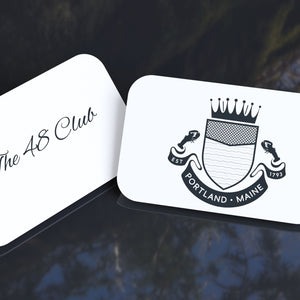What Does it Mean to Own an NFT?
Mark MurrellShare
The concepts of rights and ownership surrounding NFTs can be admittedly tricky to understand. So it’s naturally a pretty pertinent question to ask what you actually own when buying, or minting one yourself.
Unlike a physical object, an NFT exists solely in a digital space where, up until recently, the idea of owning anything purely digital is pretty vague at best. Sure, you can buy songs through iTunes or games through Steam, but those aren’t necessarily assets that can be bought and sold freely, like a house or car.
Buying an NFT also doesn’t mean you own every specific asset version unless specified. Blockchain technology provides a record of information to refer back to, but none of this store’s tangible assets, and instead represents the existence of the assets.
If that’s all a little bit confusing, then don’t worry because today’s blog focuses on helping you figure out just what happens when you own an NFT.
Read on...
Blockchain Revisited
Let’s talk a bit about the idea behind the blockchain, as this is central to the NFT space as a whole.
The blockchain is a permanent record of data; specifically, the transactions that occur between different wallets attached to the blockchain itself. The reason this changes how digital ownership is perceived lies in the state of permanence this has.
Previously, when making a digital purchase, the subject of ownership has been tentative at best as data can be easily manipulated to suit a specific party. However, the blockchain differs by eliminating the ability for data to be changed.
The history of transactions on the blockchain is permanent and not subject to the whims of even those that manage it. Each data set is eternally linked with the following data set, creating a “chain” of data that is made secure because, should someone wish to change anything, they will need to essentially destroy the “chain” in the process.
Back to NFTs
The nature of the blockchain and how it protects data from being manipulated once a transaction is complete means that, for the first time, a record of ownership can be maintained.
So, when you buy an NFT, what you’re purchasing is not the literal data associated with the asset in question but rather an irrefutable representation of ownership as recorded by the blockchain. Furthermore, the token used to represent this purchase can never be duplicated either, as any discrepancies would show as additional transactions on the blockchain, making proof of your absolute ownership easy to display.
Additional Benefits
Owning an NFT doesn’t just mean that you now have a record of your purchase. With absolute proof of ownership comes some nice perks, depending on the NFT you buy.
For example, the Bored Ape Yacht Club NFT project allows owners of their NFTs to access an exclusive club that features guest speakers, promotions, and additional benefits. There’s no requirement for a password or verification either, as the existence of a Bored Ape NFT token in your wallet is proof enough that you belong in the club!
That’s it for today’s blog entry on what it means to "own an NFT"! But, keep an eye out for more as we help you understand everything there is to the most revolutionary industry of our generation!










